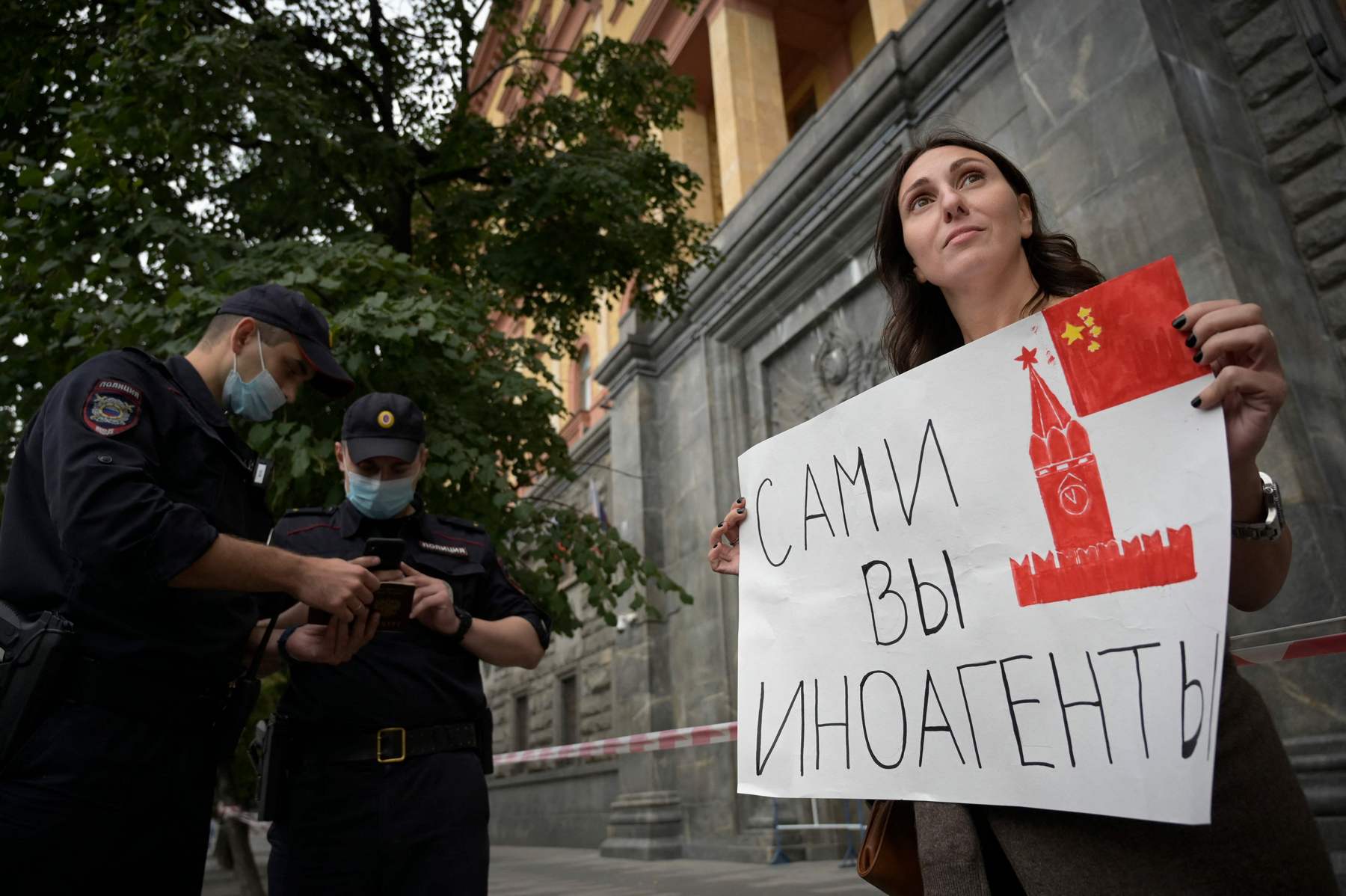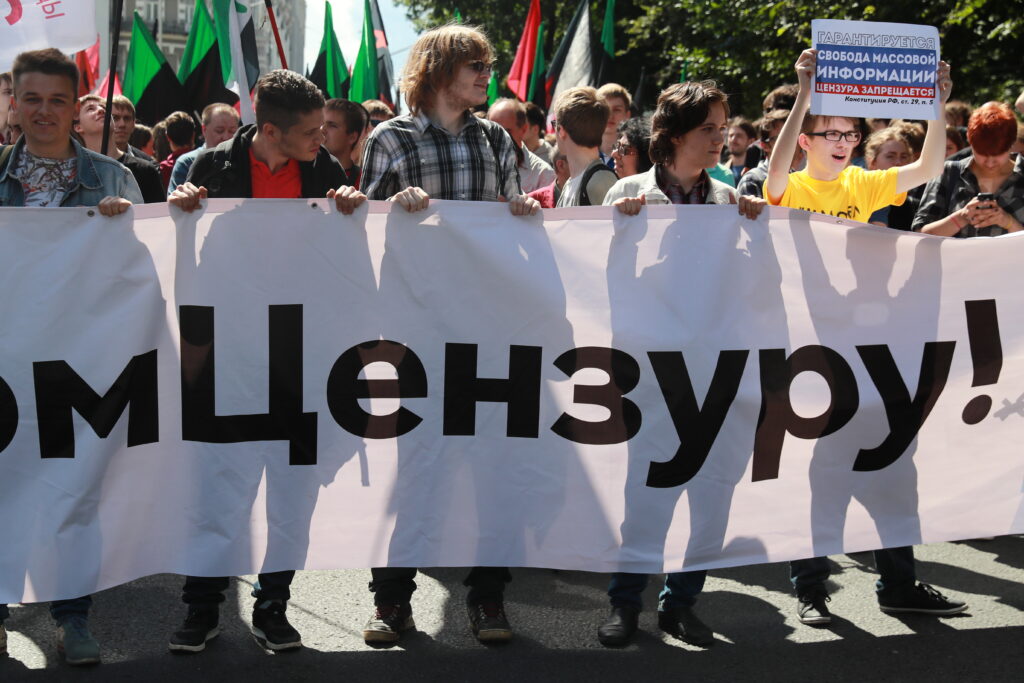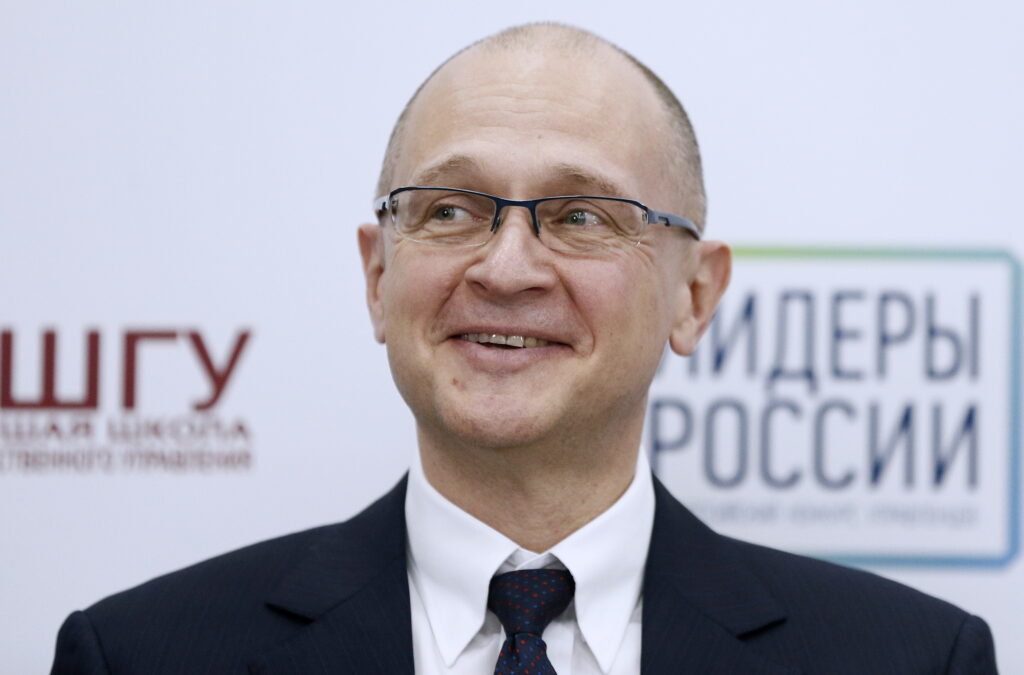Looking back on the year 2021, one has to separate emotions from facts. If you don’t, negative emotions gain the upper hand and make rational analysis impossible.
EMOTIONS: To paraphrase Karamzin, developments in the Russian media space in 2021 can be described with a single word: ‘crackdown’. The crackdown has focused on the remaining traditional independent media outlets as well as on any new media outlets that have dared break the mould and disobeyed the orders of the presidential administration or, in recent months, of the Federal Security Service (FSB), the Ministry of the Interior, the Investigative Committee, the Defence Ministry, the State Space Corporation Roscosmos and whatnot, from Kadyrov to other irritable governors. The crackdown has spread to loyal media outlets as well; they are being stifled by meaningless censorship against undesirable words (a ‘shot’ instead of a ‘blast’, etc.), by blatant expectations of political correctness (which is especially noticeable in relation to the problems of QR codes and quarantine restrictions), by patriotic ideology which has to be inserted at random into the texts due to public procurement contracts.
FACTS: As of early December 2021, 23 media outlets and 37 journalists had been labelled ‘foreign agents’ (the vast majority of them having been listed this year). Media outlets — i.e. legal entities — listed as foreign agents are in practice deprived of opportunities to earn money from advertising and to recruit and retain staff, and there is a huge additional burden on lawyers and accountants. Individuals listed by the Ministry of Justice as ‘foreign agents’ also face huge difficulties, spanning from the inability to find a job (even if they decide to change their profession) to the stressful and time-consuming quarterly reporting on the agent’s income and spending.
EMOTIONS: Individual journalists (and content creators in general) are also being silenced by being declared foreign agents, forced into exile, fined and threatened with criminal charges.
FACTS: In 2021, the number of criminal cases against journalists, content creators and ordinary social media users increased dramatically. The Prosecutor’s Office and the Investigative Committee actively use ‘checks’ as an intimidation tool in response to denunciations by ‘concerned citizens’ or pro-government activists and even pranks (in early December, the Investigative Committee began analysing the lyrics of songs by the rappers Oxymiron and Noize MC based on a joke published in a LiveJournal by the activist Dmitry Yakushev). Youth media outlets, such as the DOXA student magazine, have also come under significant pressure from law enforcement agencies. The magazine’s editors spent 2021 under de facto house arrest with restricted access to the Internet; the reason for the criminal case against them was a publication which urged students not to fear expulsion for civic activism. Searches of the homes of journalists, editors and ordinary social media users — including on the basis of being a witness in a particular ‘defamation’ case — have been used as another intimidation tool.
Foreign journalists have also faced reprisals. For example, the BBC journalist Sarah Rainsford, who had worked in Moscow for more than two decades, had her visa and accreditation withheld, and she was declared a ‘threat to national security‘.
EMOTIONS: The crackdown extends to the advertising market, one of the few sources of at least the media’s economic independence. The share of state and state-controlled money in advertising has once again increased.
FACTS: Technically, 2021 was a good year for the advertising market, as it has recovered from the 2020 slump. As of the third quarter, TV, outdoor and online advertising growth exceeded 25% year-on-year. If the trend remains unchanged, the market could once again break the $ 8bn threshold, as it did in 2018−2019.
However, the ‘recovery’ has not been evenly distributed. The key beneficiaries of growth are the largest online companies (Yandex, VK, Google) and entertainment TV channels. Neither the print press nor Internet news outlets can boast of a profitable year. On the contrary, media outlets, especially regional ones, are increasingly dependent on public budgets and state corporations in terms of advertising and news (according to some researchers, the share of politically distributed advertising and quasi-advertising budgets in regional media already exceeds 50%).
EMOTIONS: Despite the crackdown, Russian media outlets and Russian journalists are still breathing — not freely (though perhaps in a cosy Moscow apartment in an urban paradise), with a catastrophically shrinking job market, the fear of becoming a foreign agent simply for making a bank transfer from their own foreign currency account to a rouble account or for reposting a news item from Dozhd without a proper citation.
FACTS: The efforts of the independent press (and the sacrifices made for the sake of the freedom of expression) have not gone unnoticed. Dmitry Muratov, editor-in-chief of Novaya Gazeta, was awarded (along with another fearless editor, Maria Ressa) the Nobel Peace Prize. Natalia Sindeyeva from Dozhd and Roman Dobrokhotov from The Insider have been defending freedom of speech. MediaZona is doing a great job, creating a large-scale chronicle of what is happening. The TV2 broadcasting company, the 7×7 online newspaper and blog platform and other independent outlets continue to fight in their niches. Meduza, Vazhnye Istorii and Agentstvo are trying to reach out to Russians from abroad. New independent media outlets are emerging, although it seems impossible for start-ups to survive in such a situation.
EMOTIONS: It may seem that such an unprecedented crackdown on the media is happening only in Russia. But 2021 has not been an easy year even in the countries that are most supportive of independent journalism. With the end of Donald Trump’s presidency, the ‘Trump bump’ that attracted attention to media content, digital subscriptions and advertising in the US is over. In addition, the coronavirus has shaken the local service markets that feed local print media with advertising.
FACTS: Since Donald Trump’s defeat in the 2020 election, a significant portion of the polarised audience has lost interest in previously popular news outlets. The main casualties, according to Axios, were both far-right, pro-Trump media such as Newsmax and Fox News (they have lost 21%-22% of their audience) and far-left media such as Mother Jones and Vox (they have lost between a third and two-fifths of their audience). Even relatively neutral media outlets were unable to keep the momentum going: USA Today, the New York Times and the Washington Post have lost 18%-19% of their readers. The advertising market has reacted accordingly, shifting its budget — as in Russia — to entertainment, sports and specialty channels as well as the Internet. For the first time in four years, the dynamics of paid subscriptions to major media outlets have changed: neither the New York Times nor the Washington Post is reporting exponential growth in digital audiences anymore. At best, they are managing to hold on to existing audiences.
In Europe, the trend is even more discouraging: with the exception of the UK and France, there has been no recovery from the COVID year in any of the EU countries. The volume of advertising markets has been frozen at crisis levels, and paid subscriptions have remained a marginal source of income. The resolution of the conflict between German publishers (and legislators) and Google and Facebook has not been very promising: the online giants have allocated some handouts ‘to support journalism’, but there is not much enthusiasm.
Throughout the year, there has been an ongoing discussion in Western media about where the journalism of opinion ends and the activism of cancel culture begins. Dozens of renowned journalists, scientists and experts debated the issue in endless Zoom conferences, columns and even books. Apparently it was more important to justify why J. K. Rowling should be separated from her Harry Potter books for a transphobic opinion rather than deal with the real reasons behind, for example, the unhealed wound of Trump supporters who still believe their candidate won a year later.
Looking into the future: neither facts nor emotions
But back to the media space in Russia: how hopeless is this confrontation between guardians with a garrotte and several thousand defenceless journalists (including those representing Russia’s regions, social media outlets and blogs) who seem to be lacking public support? It is hard to say what the majority of Russian citizens really think, since the independent media find it difficult to reach them, while state-owned media outlets are constantly feeding them with propaganda.
Sociologists have shown that Putin’s ratings, the ratings of the authorities in general and especially the ratings of the ‘party of power’ have been gradually slipping, but election results have not reflected real voter preferences for years. Researchers speak of growing discontent among the Russian population, but this is more than subtle discontent which does not lead to any mass unrest.
Putin and his guardians may believe one day that the problem has been solved — i.e. that the enemy of the power elite, independent journalism, has been defeated and enslaved, squeezed out of the country and defamed not only in the eyes of the public but also in its own eyes. The year 2021 shows that this is precisely the aim of the authorities. According to the Levada Centre’s distrust rating, the media are perceived in a negative way: over 65% of respondents do not trust them fully or trust them only partially, nor do they trust most other public institutions, with the exception of the army and the FSB. Should sociologists try to assess the degree of trust in the different types of media, we would most likely see no difference: society is not divided along the lines of its media preferences, but it rather brushes off print media, TV channels and online sources altogether.
If one looks into the details, however, it turns out that there are areas of the information space that have not yet been affected by unbridled censorship and self-censorship: these are issues related to charity (which is increasingly more important for society) or environmental protection, which has its taboo topics but is generally less censored compared with other areas which are of more interest to the authorities. Independent written and spoken intellectual content is also more freely available. It attracts both authors and audiences in Moscow and other regions of the country. However, the law on educational activities can be widely used to exterminate independent educational platforms in the future.
Looking back on the year 2021, instead of paraphrasing Karamzin, one could quote a Twitter meme by Sergey Smirnov, a ‘foreign agent’ and editor-in-chief of the ‘foreign agent’ MediaZona: ‘It’s about to get worse’.










